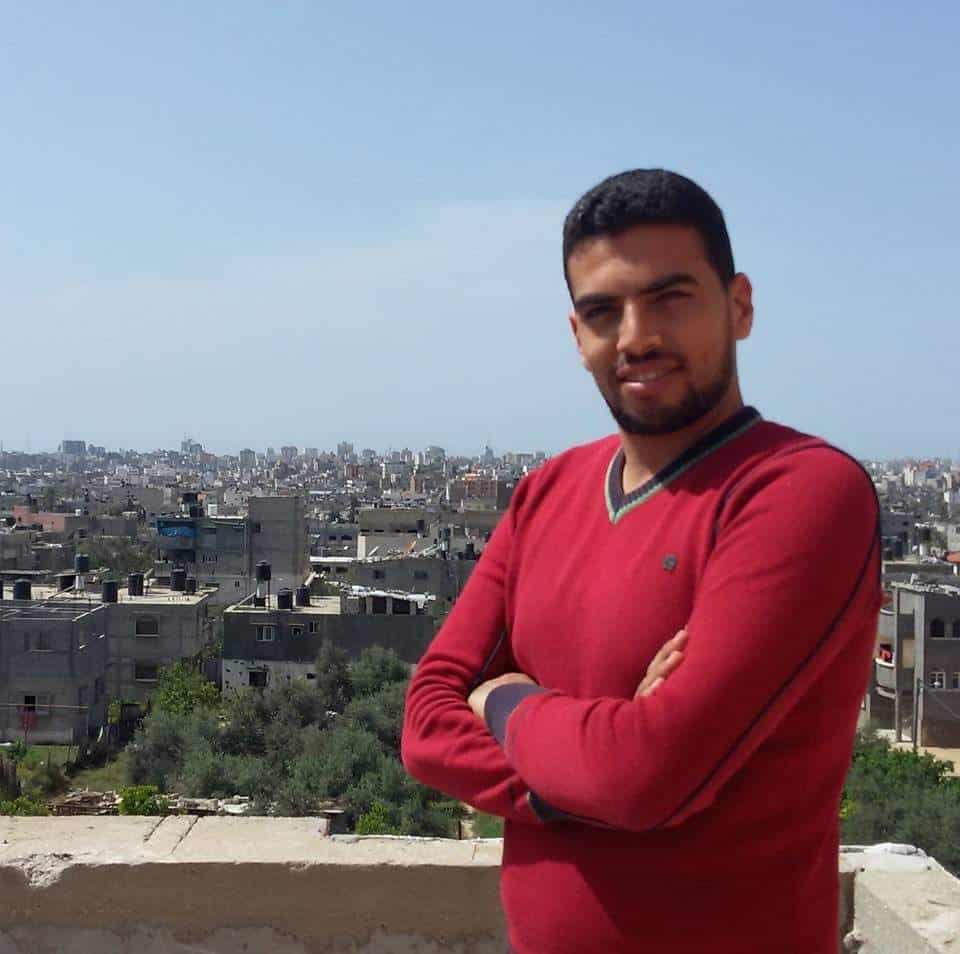Russian-Turkish tensions in the Syrian province of Idlib and the Libyan crisis have diverted the attention of the international community from the region, which in the near future could become a new hotbed of a large-scale conflict.
According to experts, in the summer of 2020 in the Gaza Strip are expected active hostilities of the Palestinian Resistance Front against Israel. This, in particular, is confirmed by the leader of the Islamic Jihad movement Ziyad al-Nahal, who recently paid an official visit to Moscow. The escalation of the conflict is based on the Palestinian Authority’s rejection of the “deal of the century” and the desire to gain revenge for the Israeli attacks in the Gaza Strip in February 2020.
Especially for World Geostrategic Insights, Denis Korkodinov talked about this topic with the Palestinian political expert Mohammed Salah al-Saigali.
1. The head of Palestine, Mahmoud Abbas, at an extraordinary meeting of the foreign ministers of the countries of the League of Arab States in Cairo, showed his reaction to the US proposed “deal of the century” to resolve the Arab-Israeli conflict. Abbas said that he is ending all relations with Israel and the United States, including in the field of security. Meanwhile, Egypt, Saudi Arabia, the United Arab Emirates, Qatar, Oman and Bahrain called on the Palestinian Authority to immediately begin direct negotiations with Israel under the auspices of the United States. Given such pressure from the international community, will Mahmoud Abbas be able to start negotiations with Israel and accept the proposed “deal of the century”? What provisions of the “deal of the century” are absolutely unacceptable to Palestine? How likely is a new war between Palestine and Israel after the publication of the “deal of the century”?

MOHAMMED SALAH AL-SAIGALI: Experience, without any reasonable doubt, proved that the process of resolving the Arab-Israeli conflict initiated by the international community was erroneous and failed 100%, which is the reason for the ongoing regional tensions. The settlement process eventually came to a standstill after Israel ceased negotiations and expanded settlements in the West Bank, which he considered “the second Israel.” The United States and Tel Aviv offer the Palestinians a distorted, distorted view of Palestinian independence, which we strongly disagree with.
Regarding the pressure of the Arabs on the authorities in order to resume negotiations with the Israeli side under the auspices of the White House administration and the degree of readiness of the Palestinian administration to withstand this pressure, I believe that Ramallah is ready to withstand any pressure and under no circumstances will she accept the “deal of the century” imposed on her even if all countries of the international community insist on its implementation.
In turn, the head of Palestine, Mahmoud Abbas, is now in a situation where he is rapidly losing the ability to influence the mood of the masses and restrain Palestinian resistance. Meanwhile, the anger of ordinary Palestinians is so great that it is very difficult to limit it. Therefore, a new wave of the Arab-Israeli conflict, which is expected in the summer of 2020, will be the most fierce. At the same time, Mahmoud Abbas and other Palestinian official leaders are unlikely to influence the crowd in order to prevent a conflict.
Palestine categorically rejected the “deal of the century.” And now there is no hope of a resumption of the negotiation process between the Palestinian Authority and Tel Aviv. And if before there was a chance that the United States could be an effective mediator in the Arab-Israeli conflict, then after the “deal of the century” it became obvious that no negotiations between the parties are fundamentally impossible.
Nevertheless, the refusal of American mediation may prompt the United States to seek new players in the Palestinian arena, with which Washington can carry out the “deal of the century” and put them at the negotiating table. But this will be possible only after the resignation of Mahmoud Abbas.
The agreement, announced by US President Donald Trump regarding a political solution to the Palestinian problem, is rejected by Palestinians and Arabs at the official and public levels for five reasons.
First, the deal destroys the dream of an independent Palestinian state within the 1967 borders and perpetuates the Oslo agreement, which is not valid after Trump and Netanyahu promised to annex the Jordan Valley.
Secondly, in the US-Israeli plan, Jerusalem is considered the single and indivisible capital of Israel, which destroys the dream of Arabs and Muslims to establish the capital of Palestine in East Jerusalem.
Thirdly, the deal destroys the dream of the right to return and compensation to displaced Palestinians in accordance with international decisions and replaces it with the formula for Palestinians living at their location.
Fourth, this deal permanently terminates all decisions of international law on the Palestinian question, including UN Security Council Resolution 242 and the decision on two states, as well as everything related to the status of the West Bank from 1967 to the present.
Fifthly, the agreement stipulates that all lands west of the Jordan River are under the sovereignty of Israel, and that the Israeli army is responsible for security in this territory. This is contrary to all international views that consider settlements illegal.
Under the circumstances, there is a great risk that full-scale hostilities will resume between Palestine and Israel. The escalation of the conflict is expected to occur in the summer of 2020.
2. Recently, Palestinian Minister of Social Development Ahmad Majdalani announced that a dialogue between Ramallah and Washington can only begin if a member of the Democratic Party leads the US administration after the 2020 presidential election. Does this mean that Palestine maintains relations with the US Democratic Party and is ready to support its candidate for the election of the head of the White House in 2020? Is it fair to say that if the new US president is a member of the Democratic Party, Palestine can recognize the “deal of the century”? Will Palestine influence the process and results of the election campaign in the USA?
MOHAMMED SALAH AL-SAIGALI: There is currently insufficient evidence that there is a direct and strong relationship between the US Democratic Party and the Palestinian Authority. However, we can argue that the Palestinians agree with the American Democrats regarding the Arab-Israeli conflict and the “deal of the century” adopted by the White House administration.
Palestinians are trying to invest in changing the policies of the American Democratic Party, especially after it rejected the “deal of the century” through presidential candidates Bernie Sanders and Joe Biden.
In addition, Democratic presidential candidates rejected Israeli settlements and condemned the repeated attacks on Palestinians that took place in the Gaza Strip.
We do not know how relations between Ramallah and Washington will develop after the US presidential election. However, it is obvious that a constructive dialogue with the White House administration is possible only if the “deal of the century” is completely abolished and Palestine is restored within the 1967 borders. At the same time, it does not matter whether the new US president will be the representative of the Democrats or Republicans.
Unfortunately, the Palestinian issue is not an important issue for the American voter, and mentioning this issue during the election process is nothing more than an ordinary formality. The American voter cares little for Arab problems, including Palestinian ones. Domestic politics, jobs and entertainment, as well as the current economic problem with which the candidate evaluates his achievements on the economic scene, and the election results depend on the automatically cast votes. In this regard, Palestine cannot affect the outcome of the American election.
3. On February 16, 2020, the Minister of Foreign Affairs of Luxembourg, Jean Asselborn, met in Brussels with the heads of the foreign affairs agencies of Belgium, Finland, France, Ireland, Malta, Spain, Slovenia, Sweden and Portugal regarding the need to recognize the Palestinian state if Israel creates problems for the countries of the European Union. What are the prospects for the Luxembourg initiative? Is it possible that the European Union, having recognized Palestine, will in fact sabotage the “deal of the century” and aggravate relations with the USA and Israel?
MOHAMMED SALAH AL-SAIGALI: The initiative, launched by Luxembourg Foreign Minister Jean Asselborn, aims to encourage all European Union member states to jointly recognize the State of Palestine in response to a recent US declaration that considers the West Bank settlement not to be contrary to international law. Luxembourg’s Foreign Minister sent a message to European Union Foreign Minister Joseph Barrell and the Foreign Ministers of 27 member states, where he emphasized that the Union should advance the decision to create two states by creating politically equal conditions between the two sides. However, this initiative did not find supporters in the international arena.
European Union opposition to Trump’s plan will encourage the Palestinians and Arab countries, in general, to abandon the “deal of the century.” However, the European Union is unlikely to directly sabotage the agreement that Washington has adopted.
4. On February 9, 2020, the Israeli Ministry of Housing submitted a request for the construction of 9,000 houses in East Jerusalem, which, according to the “deal of the century”, was recognized as Palestinian territory. In particular, the houses will be built on a land plot between the Palestinian areas of Kafr Aqab, Qalandia and Al-Ram in East Jerusalem and at the site of Atarot Airport, which has not been used since the Second Intifada in 2000. What do you think about this? How will the Palestinian leadership and armed groups affiliated with Palestine react with the construction of Israeli houses in East Jerusalem?
MOHAMMED SALAH AL-SAIGALI: This dangerous plan, covering some 1,200 acres of Palestinian land, aims to complete the plan to isolate all of Jerusalem from its Palestinian encirclement in the northern city limits after the establishment of the military checkpoint Kalandiya, which politically and geographically separated Jerusalem from the rest of the West Bank. The plan, if approved, will include the demolition of dozens of Palestinian homes in the Masjid al-Matar region east of Kalandia.
The Palestinian Authority condemned the decision of Israel to organize settlements on Palestinian soil, and therefore complained to the United Nations and the International Security Council.
The eviction of a large number of Palestinians from East Jerusalem could force Palestinian armed groups to conduct a military operation against Israel.
5. On February 19, 2020, the construction of a concrete wall along the border with the Gaza Strip began in Egypt to impede the flow of migrants and ensure the security of its territory. Will this be a reason for the aggravation of relations between Egypt and Palestine? How real is the threat to Egypt from migrants from the Gaza Strip?
MOHAMMED SALAH AL-SAIGALI: The new wall on the border of Egypt and the Gaza Strip is a second wall parallel to the old stone wall that Cairo has been using since the beginning of January 2008 at a distance of no more than 10 meters from the border. According to the Egyptians, the goal of building a concrete wall is to prevent the entry of militants from the Gaza Strip into the Sinai.
I do not think that the concrete wall will harm Palestinian-Egyptian relations, since the decision to build was made on the basis of mutual understanding between the Palestinians and Egyptian intelligence.
At present, the situation in the border zone on the Palestinian and Egyptian sides is relatively stable. ISIS has ceased to use this sector of the territory for terrorist acts. This allows us to conclude that the construction of the wall on the border with Egypt, in terms of regional security, is fully justified.







